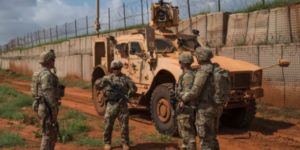The stakes in military medicine are undeniably high. Service members and their families depend on the military healthcare system to provide timely, accurate, and effective care. However, like any field of medicine, errors can occur. These errors can have severe consequences, not only for the patients involved but also for the mission readiness of military units. Continuous Medical Education (CME) plays a pivotal role in reducing these errors and ensuring military medical professionals remain at the forefront of their field.
Why Military Medicine is Unique
Military medicine operates in environments that civilian healthcare professionals rarely encounter. Combat zones, deployment areas, and resource-constrained settings demand a unique set of skills and knowledge. Military healthcare providers must be prepared to address:
- Trauma from combat injuries: Including gunshot wounds, explosions, and burns.
- Mental health challenges: Such as PTSD and combat-related stress.
- Exotic diseases: Encountered during deployments in remote areas.
- Limited resources: Requiring creative problem-solving and adaptability.
These challenges underline the necessity for continuous learning. Unlike static professions, medicine—and especially military medicine—demands an ongoing commitment to education and improvement.
Understanding Medical Errors in the Military Context
Medical errors in the military context can range from diagnostic mistakes and surgical complications to medication mismanagement. While errors occur in any medical system, the military context adds layers of complexity due to:
- High-pressure environments: Military doctors often make life-or-death decisions under immense stress.
- Rotating personnel: Frequent transfers and deployments can disrupt continuity of care.
- Complex health issues: Service members often present with unique combinations of physical injuries and psychological conditions.
Preventing these errors requires more than just individual skill. It demands a system-wide emphasis on learning, collaboration, and accountability.
The Role of Continuous Medical Education in Military Medicine
Keeping Up with Advances in Medicine
Medicine evolves rapidly. New techniques, technologies, and treatment protocols emerge regularly. Continuous Medical Education ensures that military healthcare professionals stay updated on:
- Advances in trauma care: Techniques such as damage control resuscitation or the use of tourniquets.
- Mental health treatments: Innovative therapies for PTSD and depression.
- Technological tools: Such as portable diagnostic devices and telemedicine capabilities.
By staying informed, military doctors and nurses can provide the best possible care to their patients.
Reducing Preventable Errors
CME programs often focus on areas where medical errors are most likely to occur. For example:
- Medication errors: Training on new drug interactions or updated prescribing guidelines.
- Surgical safety: Best practices to prevent infections or complications.
- Diagnostic accuracy: Techniques to improve recognition of rare conditions.
By addressing these areas, CME helps minimize preventable errors and improve patient outcomes.
Building Teamwork and Communication Skills
Many medical errors stem not from a lack of knowledge but from breakdowns in communication. CME programs often include modules on:
- Interdisciplinary collaboration: Ensuring that doctors, nurses, and support staff work effectively together.
- Crisis management: Preparing teams to function cohesively during emergencies.
- Cultural sensitivity: Particularly important when treating diverse populations or working in international contexts.
In the high-stakes environment of military medicine, strong teamwork can mean the difference between life and death.
How CME Addresses the Challenges of Military Medicine
Simulation-Based Training
Simulation-based training is a cornerstone of CME in the military. Using realistic scenarios, healthcare providers can practice responding to:
- Combat injuries: Managing multiple casualties under time pressure.
- Medical evacuations: Safely transporting patients from the field to higher-level care facilities.
- Uncommon diseases: Diagnosing and treating illnesses rarely seen in the U.S.
These simulations provide a safe environment to learn, make mistakes, and improve without jeopardizing real lives.
Global Health and Deployment Medicine
Military personnel often serve in diverse environments, from desert outposts to jungle bases. CME programs frequently include training on:
- Tropical medicine: Diagnosing and treating diseases like malaria or dengue fever.
- Environmental health risks: Addressing exposure to extreme temperatures or chemical agents.
- Cultural competence: Understanding how cultural beliefs impact medical care.
By preparing for these challenges, military healthcare providers can deliver effective care wherever they are deployed.
Mental Health and Resilience Training
CME also addresses the mental health challenges faced by both patients and providers. Topics might include:
- PTSD recognition and treatment: Ensuring that service members receive the mental health support they need.
- Provider resilience: Teaching healthcare professionals to manage their own stress and avoid burnout.
- Suicide prevention: Identifying warning signs and providing appropriate interventions.
Given the mental health crisis in the military, these training programs are essential.
The Broader Benefits of CME in Military Medicine
Beyond preventing errors, CME has far-reaching benefits for the military healthcare system:
- Improved Patient Outcomes: Continuous education ensures that patients receive evidence-based, high-quality care.
- Increased Provider Confidence: Well-trained providers feel more confident in their abilities, leading to better decision-making.
- Enhanced Mission Readiness: Healthy service members contribute to the overall effectiveness of military units.
- Stronger Reputation: A commitment to excellence reinforces trust in the military healthcare system, both within the armed forces and in the broader community.
Conclusion:
Continuous Medical Education is not just a requirement; it’s a responsibility. In the dynamic, high-pressure world of military medicine, the need for ongoing learning cannot be overstated. CME programs equip military healthcare professionals with the tools, knowledge, and skills to excel in their roles, reducing errors and improving patient care.
For military medical professionals, investing in CME is an investment in the well-being of their patients, the effectiveness of their teams, and the overall readiness of the armed forces.
At Khawam Ripka LLP, we understand the critical role that Continuous Medical Education plays in preventing errors and enhancing military healthcare. Our CME programs are tailored to meet the unique challenges of military medicine, combining cutting-edge content with practical, hands-on training.
Take the first step toward excellence. Explore our CME offerings and empower yourself to deliver the best care possible. Contact us today at our website Khawam Ripka LLP to learn more!

 Call Now- Open 24/7
Call Now- Open 24/7




